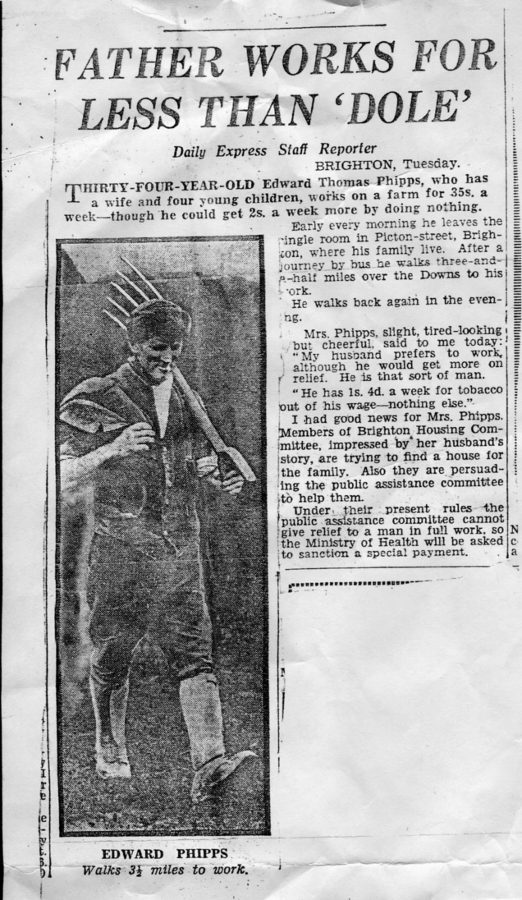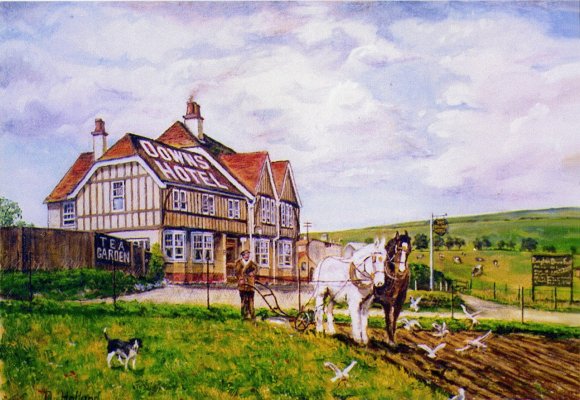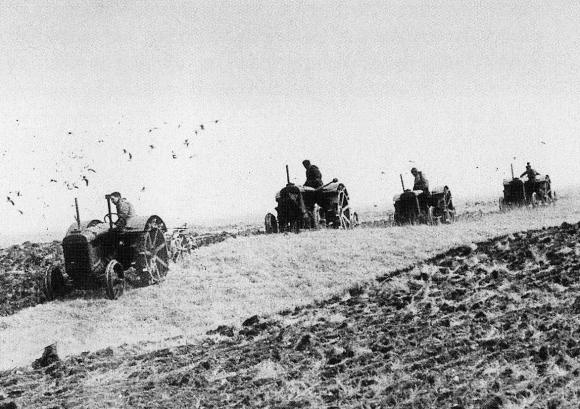A History of Newmarket Farm in Twelve Objects
Object 5 – Agricultural Labourers
Object 5 – Agricultural Labourers
-
Money
Only 2 halfpennies and 2 farthings were excavated from the cottage site, all from reign of George V


—————————————————————–
Money – Very low earnings; how poor were they?
Purchasing power of agricultural labourer;
- Earnings hard to calculate
- Records for wages not known to exist for Newmarket Farm labourers
- Wages higher at harvest time, lower in winter
- Wages varied greatly by locality
- Extra income from various sources
- Remote location implies less earning opportunities (longer travelling times – less free time)
- Poaching
- Punishment if caught very much higher in 1830 than in 1930, so more likely in later times
- also, shepherds did not like to be deprived of their perks by lower status agricultural labourers
- but, the widespread use of barbed wire after WW1 to contain sheep, etc, meant fewer visits by farmer or shepherd, so chances of getting caught were greatly reduced
- Increasingly cheap foreign imports of food, especially with advent of refrigerated ships, meant farm profits – and hence wages – dropped
- Expenditure very difficult to assess
- Did they pay rent for cottage?
- Did the farmer provide extras such as food and drink at harvest time?
- Remote location implies higher costs (fewer money saving opportunities)
- Types of expenditure varied enormously over 100+ years
- Baths in hot water were not considered healthy till mid-nineteenth century (soap taxed till 1853)
- Cooking over an open fire or range, replaced by paraffin stove by 20th century
- Lighting by candle replaced by bright paraffin lamps
- Industrial mass production reduced the cost of goods
- Woolworth’s in 1920’s (the original equivalent of today’s pound shops) enabled people to buy more luxury household items
- Individual families;
- some never spent money on alcohol
- some didn’t spend any money on toys and treats for children
- Some published sources have attempted to make general statements
- 1670-1850;
- Situation probably more or less stable in UK
- but dropped in Sussex;
- Life as a farm labourer in 1750;
- After 1850 big gap between agricultural & non-agricultural wages
- by 1900 gap continued to increase
- Factory workers situation improved, but not agricultural workers;
- From above sources, and confirmed by others
- Factory workers situation improved, but not agricultural workers;
- by 1900 gap continued to increase
- 1670-1850;
Object 5 – Agricultural Labourers
Edward Phipps – featured in Daily Express shortly after leaving Newmarket Farm

- Edward Phipps worked for less than the dole;
- As a result of this report, Daily Express readers sent his children lots of presents for their best Christmas ever!
How did Reg Latham get Edward Phipps’ job?
- Edward Phipps (1934-1938) worked with horses – like all those before him;
- Painting below, by Douglas Holland of horse ploughing opposite Downs Hotel, Woodingdean, shows Newmarket Hill in background
- The decorative hand-forged wrought iron hoof pick we excavated could have been from any farm labourer since the cottage was built

How did Reg Latham get Edward Phipps’ job?
- In 1938 the government required farms to increase production in preparation for the likely war with Germany;
- So the farm for which he worked bought two tractors to meet this demand
- On Reginald Latham’s marriage certificate, his occupation was: tractor driver
- The shiny metal piston rod excavated from the ‘cubby hole’ (shed) may have been from a tractor

Previous: Object 4 – Census Records
One reply on “Object 5 – Agricultural Labourers”
[…] Object 5 – Agricultural Labourers […]